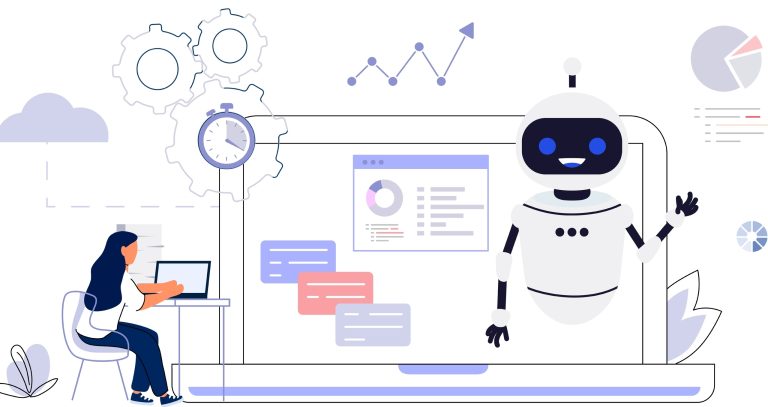In today’s business landscape, where competition is increasingly fierce and efficiency is key to differentiation, cognitive automation has emerged as an indispensable tool for success. This technique has pushed the boundaries of traditional automation, which relied on the execution of predefined repetitive tasks by software and has driven efficiency to unimaginable levels. But how is this revolution transforming the way companies operate and stand out in their competitive environment?
To understand the scale of cognitive automation, we must first explore its beginnings with traditional automation. The latter focused on software robots executing predefined rule-based processes. However, cognitive automation goes further, allowing it to handle complex data without a specific structure. In a world where companies are faced with massive amounts of unstructured information, such as various documents, the need arises to extract knowledge from this data automatically.
Before the birth of this technology, extracting data from unstructured documents required time-consuming and resource-intensive human analysis. However, cognitive automation has turned this process on its head. Through technologies such as optical character recognition, machine learning and natural language processing (NLP), software can understand information in a similar way to how a human would. From emails to chats and even phone calls, cognitive automation can understand and process data in a variety of formats.
One of the areas where cognitive automation excels is in decision-making. This technology can automate decisions based on data collected and analysed in real time. Accelerating and optimizing procedures, which translates into a great competitive advantage. In addition, cognitive automation enables an automatic and robust response to potential incidents. The technology can learn from these situations and correct them autonomously, reducing the need for human supervision and improving efficiency.
In terms of customer service, there are also numerous benefits. The implementation of chatbots with the ability to understand and respond to customer needs has revolutionized the way businesses handle queries and problems. For example, a chatbot can handle most complaints related to cancellations or modifications, transferring control to a human agent only when absolutely necessary. This ensures faster and more accurate service, improving the customer experience and strengthening brand image.
As companies embrace cognitive automation, they are taking giant steps towards complete digital transformation. This technology not only saves time and resources by automating previously manual tasks, but also frees up human effort to tackle more strategic and creative challenges. Therefore, we could argue that cognitive automation is not about replacing humans, but about extending their capabilities and freeing them from repetitive and monotonous tasks.
In short, as we have seen throughout the article, cognitive automation has left a mark on modern business efficiency. From revolutionizing decision-making to customer service. Freeing people from routine duties to focus on more innovative tasks. It is therefore safe to say that businesses are on an exciting path towards limitless efficiency and potential.






